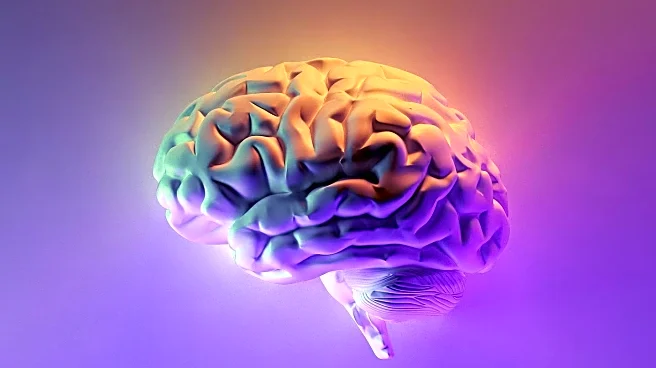What's Happening?
Researchers have identified a microglial switch that can transform immune cells from promoting plaque to protecting against it, offering a new avenue for Alzheimer's disease treatment. The study, published
in Nature, explores how reducing the transcription factor PU.1 in microglia and modulating lymphoid-like receptors such as CD28 can alter plaque-associated states, inflammation, synapses, and disease progression. The research involved mapping microglial states using various techniques, including single-cell RNA sequencing and spatial transcriptomics. The findings suggest that microglial programs can be tuned to either help or harm, with precise strategies needed to shift microglia into protective states.
Why It's Important?
This discovery is significant as it provides a potential therapeutic target for Alzheimer's disease, which affects millions worldwide. By understanding how microglia can be manipulated to protect synapses and cognitive function, researchers can develop new treatments that may slow or prevent the progression of Alzheimer's. The study highlights the importance of genetic and cellular research in uncovering mechanisms that could lead to effective interventions. The potential to modulate microglial states offers hope for improving the quality of life for those affected by Alzheimer's and reducing the burden on healthcare systems.
What's Next?
Further research is needed to translate these findings into clinical applications. Scientists will likely explore how these genetic modifications can be safely and effectively implemented in humans. Clinical trials may be conducted to test the efficacy of treatments based on this research. Additionally, the study opens avenues for exploring other neurodegenerative diseases where microglial function plays a role. Collaboration between geneticists, neurologists, and pharmaceutical companies will be crucial in advancing these discoveries into practical therapies.
Beyond the Headlines
The ethical implications of genetic modification in treating diseases like Alzheimer's must be considered. While the potential benefits are significant, there are concerns about the long-term effects and the accessibility of such treatments. The research also raises questions about the role of immune cells in brain health and how they can be harnessed to combat various neurological conditions. As the field of neurogenetics advances, it will be important to balance innovation with ethical considerations.









